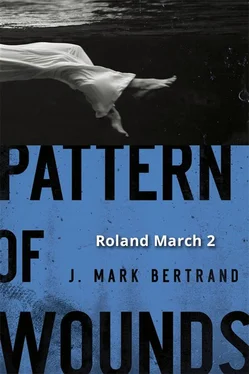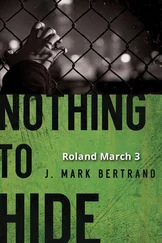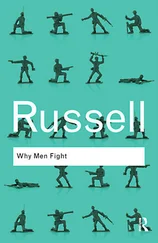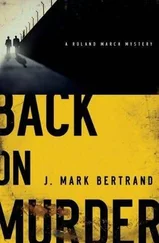J. Bertrand - Pattern of Wounds
Здесь есть возможность читать онлайн «J. Bertrand - Pattern of Wounds» весь текст электронной книги совершенно бесплатно (целиком полную версию без сокращений). В некоторых случаях можно слушать аудио, скачать через торрент в формате fb2 и присутствует краткое содержание. Год выпуска: 0101, Издательство: Baker Publishing Group, Жанр: Полицейский детектив, на английском языке. Описание произведения, (предисловие) а так же отзывы посетителей доступны на портале библиотеки ЛибКат.
- Название:Pattern of Wounds
- Автор:
- Издательство:Baker Publishing Group
- Жанр:
- Год:0101
- ISBN:нет данных
- Рейтинг книги:3 / 5. Голосов: 1
-
Избранное:Добавить в избранное
- Отзывы:
-
Ваша оценка:
- 60
- 1
- 2
- 3
- 4
- 5
Pattern of Wounds: краткое содержание, описание и аннотация
Предлагаем к чтению аннотацию, описание, краткое содержание или предисловие (зависит от того, что написал сам автор книги «Pattern of Wounds»). Если вы не нашли необходимую информацию о книге — напишите в комментариях, мы постараемся отыскать её.
Pattern of Wounds — читать онлайн бесплатно полную книгу (весь текст) целиком
Ниже представлен текст книги, разбитый по страницам. Система сохранения места последней прочитанной страницы, позволяет с удобством читать онлайн бесплатно книгу «Pattern of Wounds», без необходимости каждый раз заново искать на чём Вы остановились. Поставьте закладку, и сможете в любой момент перейти на страницу, на которой закончили чтение.
Интервал:
Закладка:
The Rice Village swarms with shoppers flitting back and forth across University Boulevard, forcing me to ride the brake as Aguilar eyes them with suspicion. Charlotte could spend a whole day weaving through the cluster of boutiques and restaurants, which have also played host to most every impromptu rendezvous in the course of our marriage. But my colleague’s downturned lip prevents me from letting on that I have a history with the shopper’s mecca.
“Do these people not have jobs?” he asks.
I answer with a noncommittal grunt.
The seclusion of Dr. Hill’s house just a few blocks away is all the more surprising when you consider how many people are in close proximity. I can understand the location’s appeal-in the heart of everything, and yet strangely remote. Despite the reputation West U. has for maintaining its neighborhood feel while having long since been swallowed by the city, the canvass of surrounding houses turned up next to nothing. Not only did the neighbors claim not to have witnessed anything, half of them didn’t know who Dr. Joy Hill was or that a woman named Simone Walker lived in her house. The professor keeps to herself, apparently, and Simone followed the same example.
“It never hurts to knock on doors again,” I say. “Assuming you’re up to it.”
Aguilar answers with a shrug. “It wouldn’t hurt to take another look at the scene, either.”
“Great minds think alike.”
After pounding on the door for a few minutes and deciding no one’s home, I try to reach Dr. Hill on the three numbers I have for her-home, office, and cell-leaving the same message each time. Then we duck under the tape near the garage and effect an entrance by climbing the fence, which leaves an indentation in the professor’s shrubbery and a needlelike wood splinter in my palm. I linger too long over the injury, prompting Aguilar to ask if I’m planning to retire on disability.
Again, I’m struck by how intimate and enclosed the yard feels. As distant as the surrounding block is from the bustling Rice Village, the backyard seems more distant still from the surrounding block. Apart from the tops of the neighboring houses, an upper floor window here and there, and a second floor veranda just visible over the back fence, the pool and its outbuildings give the impression of absolute privacy. It’s not hard to believe the neighbors saw nothing. From the street outside, a passerby would be oblivious to anything going on back here.
I take a slow walk along the length of the pool, ending up at the far side, confirming yet again the uncanny resemblance of Saturday night’s scene with the photo from Nicole Fauk’s murder.
Aguilar comes up alongside, hands in pockets. “You really aren’t letting go of the Fauk connection, are you?”
“It fits with everything else. Simone’s death was meticulously planned, and part of that included the way the scene was arranged.”
“Was there a chair at the bottom of the pool back then?”
“No,” I say, “but the chair wasn’t visible from the angle of the photo. It didn’t matter.”
He crouches down. “You have the old picture on you?”
I do, tucked in my pocket along with the snap of Jason Young. I hand it over for examination, then make my way around to the pergola, checking the ground in daylight in case we missed some telltale sign before. Glancing back, I see Aguilar holding the photo in front of him, closing one eye and then the other like an optometrist’s patient trying to bring the chart across the wall into focus.
“Are the chairs over there exactly how they were before?”
Glancing at the furniture underneath the pergola, I’m not exactly sure whether the crime scene techs moved them or not.
“It looked like in the Fauk picture,” I say. “He edged them around just the same.”
He nods and walks over, gazing down at the picture the whole time.
“Here,” he says, handing it to me. “How many chairs?”
“Three.”
“And there’s four there now. But one was in the pool. You were wondering the other night why he threw one in, and you just answered your own question. From the angle of the photo, the chair in the water wouldn’t be visible. He wasn’t dragging her body in the chair or throwing it down there to wash it off. He just couldn’t think of an easy way to get rid of it.”
“To match the picture.”
The simplest explanation. And it never even dawned on me. I tuck the photo back into my pocket without meeting Aguilar’s gaze, embarrassed he had to walk me through the answer.
“Sometimes you can’t see the forest-”
“Thanks,” I say. “That makes me feel a lot better.”
“The point is, maybe there’s something to this Fauk angle, after all.”
Instead of retracing our route, we slip out through the garage. Aguilar heads toward Brompton to canvass while I take the doors on Wakeforest, using the notes from the patrol officers who did the work Saturday night to prioritize houses where we found no one home. Signs spiked into half the yards remind me of the impending mayoral runoff election. A cleaning woman answers my first knock, resulting in an oblique conversation in pidgin Spanish to the effect that, no, she’d seen nothing and knew nothing. At the home behind Dr. Hill’s, a plump and cheerful housewife named Kim Bayard invites me inside and tells me how shocked she was to hear of the crime. Just when I start to get excited, though, and think she has information for me, Mrs. Bayard explains she heard about the murder late last night when she got back from a weekend in Colorado.
“Maybe your husband witnessed something?”
She smiles. “He’s in Nigeria. Consulting for an oil company. But you know who you should talk to? Emmet Mainz. He knows everything that goes on around here. He’s a sweet old man, and I’m sure he’d be happy to help.”
Emmet Mainz turns out to be a wealthy widower in his late sixties. From the housewife’s description I’d expected an elderly busybody, but Emmet is nothing of the sort. He leads me across glossy parquet floors, graceful in a sweater and loose wool trousers, into a room he refers to as the conservatory. The corridor outside is decorated with a series of double frames, each containing a typewritten letter on one side and a newspaper clipping on the other.
“My letters to the editor,” he says with a smile. “Now that I’m at leisure, I have to do something to keep busy, so I fire off these letters. Whenever one of them is published, it goes up on the wall. You’d be surprised how satisfying it can be.”
I scan the letters quickly. Most of them seem to be factual corrections or quibbles with the opinions expressed in book reviews. Once I’ve had a look, Emmet guides me into the conservatory, resuming his seat at a black piano, shuffling through the jumble of sheet music on the stand. He knows everything that goes on, he says, thanks to the fact that he sits on just about every neighborhood committee in existence and regularly hosts musical evenings.
“All I can tell you about that poor girl is that she had no ear for music,” Emmet says. “Joy brought her over once, sometime during the summer, and she banged out one of the worst performances of ‘Chopsticks’ I’ve ever heard in my life-and that’s saying something.”
To prove his point, he pounds a few discordant measures on the keyboard, smiling wickedly at the conclusion, eyes alight with mischief.
“You never met her husband?” I ask. “Or observed anyone visiting the house.”
His fingers move over the keys again, wringing out a few elegiac notes with the slightest pressure, letting them hang on the air. Gray light pours through the drawn curtains, etching faint shadows across the floor.
“What you must think of me,” he says, “asking questions like that. I’m not a peeping Tom. I’m afraid I can’t help you. I wouldn’t even have remembered her name if it hadn’t been in the paper.”
Читать дальшеИнтервал:
Закладка:
Похожие книги на «Pattern of Wounds»
Представляем Вашему вниманию похожие книги на «Pattern of Wounds» списком для выбора. Мы отобрали схожую по названию и смыслу литературу в надежде предоставить читателям больше вариантов отыскать новые, интересные, ещё непрочитанные произведения.
Обсуждение, отзывы о книге «Pattern of Wounds» и просто собственные мнения читателей. Оставьте ваши комментарии, напишите, что Вы думаете о произведении, его смысле или главных героях. Укажите что конкретно понравилось, а что нет, и почему Вы так считаете.












